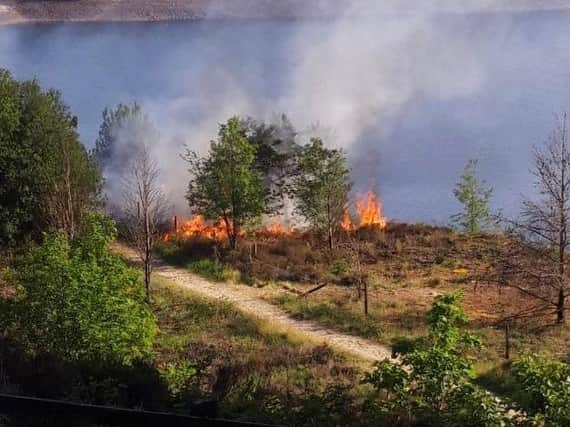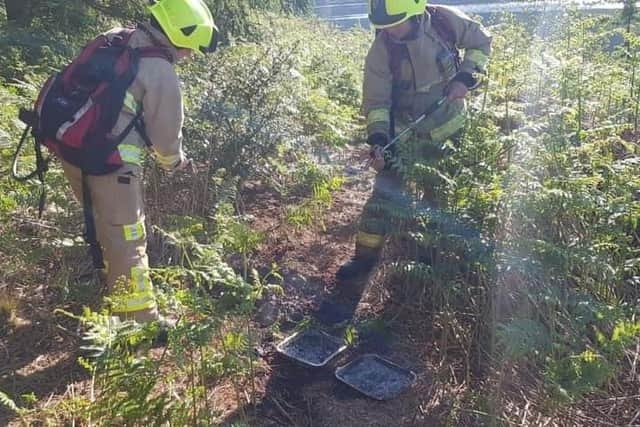Disposable barbecues cause fires to break out at two Yorkshire reservoirs


The incidents occurred at Cod Beck Reservoir near Osmotherley in the North York Moors National Park and Digley Reservoir near Holmfirth, which is within the Peak District National Park boundary. Both sites are owned by Yorkshire Water.
At Cod Beck two barbecues abandoned beside each other had caught alight and the flames had begun to spread into the undergrowth before fire crews from Northallerton arrived at the scene earlier today.
Advertisement
Hide AdAdvertisement
Hide AdAt Digley, a more serious blaze took hold on Saturday evening and both police and the fire service attended the scene, where the remains of a disposable barbecue were found.


North Yorkshire Fire and Rescue Service also extinguished a still-lit barbecue that had been discarded in a layby, although the location was not disclosed, and had to rush to a campfire reported burning in some woods near Goathland on Saturday night to prevent it spreading.
Cod Beck, which is just a short drive from Middlesbrough, has already established a reputation as a lockdown trouble spot. Last weekend, a large number of drivers from Teesside were fined for illegal and inconsiderate parking on a road near the reservoir while the car park was closed.
After a prolonged spell of warm and dry weather, the Yorkshire countryside is subject to the highest level of fire risk warning. Both the police and fire services have issued strict warnings against the use of disposable barbecues and the lighting of fires outdoors, and they are also banned under by-laws in areas such as public parks.